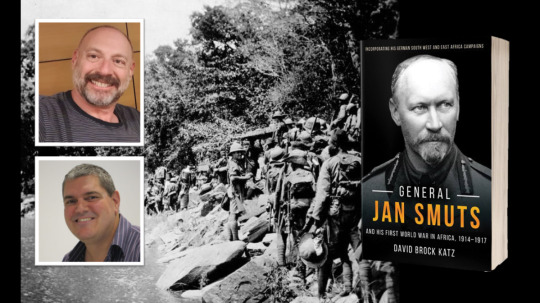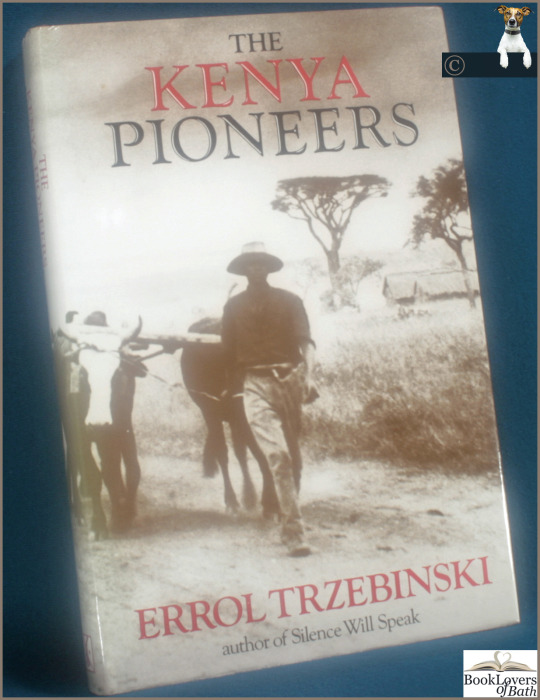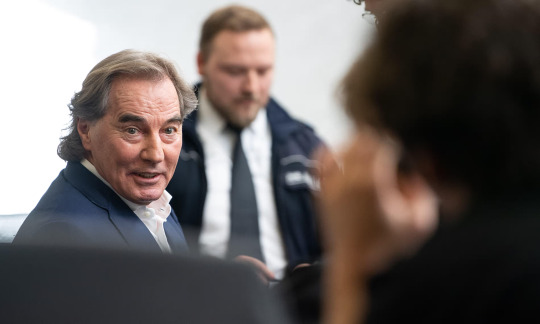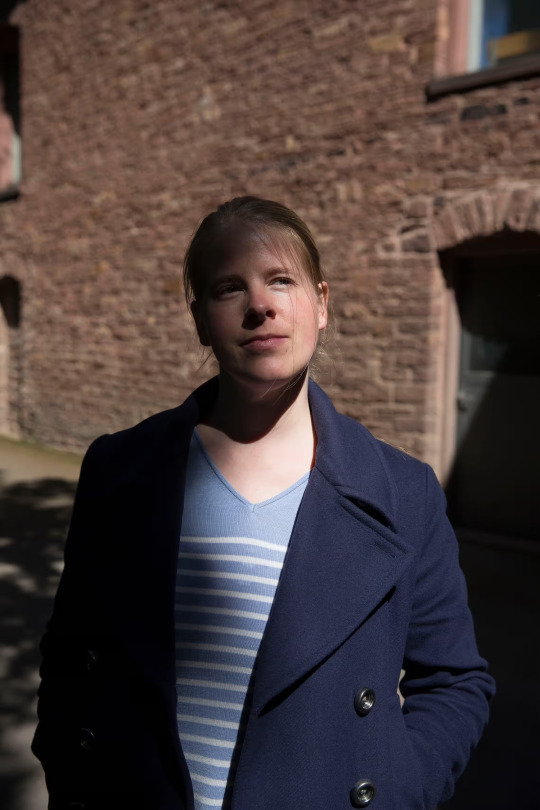#german east africa
Text

1916 02 12 East Africa, South African infantry attack Salaita Hill - Graham Turner
23 notes
·
View notes
Photo


Photo ( Bild 105-DOA6369 ) taken by Walther Dobbertin and colourized by In Colore Veritas
A German Schutztruppe askari poses for the camera with the German Imperial flag. German East Africa, 1906.
35 notes
·
View notes
Text
Finding Smuts' essence!
Finding Smuts’ essence!
Book Review: Jan Smuts and his First World War (1914-1917) by David Brock Katz
Finally, a refreshing new look at Jan Smuts, and not a popularist novel, a proper historical treatise, so well researched it stands up to strong academic scrutiny and it will stand for some time to come.
Jan Smuts and his First World War 1914-1917 by Dr David Bock Katz is a revelation, it seeks out and finds Smuts’…

View On WordPress
#Afrikaner Rebellion#Allied Forces#Boer War#British Empire#East Africa#First World War#German East Africa#German South West Africa#Germany#Jan Smuts#Louis Botha#manoeuvre doctrine military doctrine#Paul von Lettow-Vorbeck Salaita Hill#Schutztruppe#South African Union Defence Force
2 notes
·
View notes
Text
#nations of the world tournament#poll#polls#propaganda encouraged#nations of the world retro#nations of the world 1914#Saint Martin#German East Africa
0 notes
Text


Tanzania enroute to Japan, 1907.
I now have two illustrations of Vincent Odinkirk in East Africa. :3
White is colonial parade dress, Kahki is colonial walking out dress (both German). These are pieces of concept art for Moth, the script has clear anti-colonial themes.
#ottoway spin-off#moth#historical fiction#pre-war#early edwardian period#colonial uniforms#german military history#east africa#tanzania#art
9 notes
·
View notes
Text
Artillerie-Beobachtungsstand im Rufiji-Delta.

the picture shows German troops like Askaris in German East Africa during World War 1. it is an artillery observation post in the Rufiji Delta. The sailor on the picture probably comes from the SMS Königsberg but only my guess is because in the 1 World War sailors from this ship were integrated into the troops of Paul Lettow-Vorbeck.
#history#ww1#world war 1#germany#german empire#historical photos#german army#askari#east africa#colonial history
43 notes
·
View notes
Text
Sexy knit mesh dress romantic date night
#romantic#Bodycon dress#knit dress#baddie aesthetic sexy bitch apparel#baddie#slimthick#girls with curls#german girl#blackgirl#east africa#east african
61 notes
·
View notes
Text
The way people don’t understand genetics history or geography is so apparent when people on Twitter bicker about whether southern and or eastern Europeans are white
#not only is pan Mediterranean travel a thing and has been since ppl could build ships#(north africa is literally actoss this sea y’all)#there are non white indigenous peoples . there’s roma and romani#there’s mongol and turkic genes and all sorts of occupations back n forth#reality is not so simple#the oppression of balkan ppl will never be the same as the oppression of black slaves in the usa. of course.#italians can be white . but there have always been african south Europeans and asian east europeans#I personally know of a black family in montenegro that’s been there for centuries#most people in the balkans have turkish arabic and or mongol genes somewhere in the family tree. many r muslim#it’s complicated#and yea I’m sure they benefit more from colonialism and white supremacy than actual asians and africans 100% that is true#but to dumb it down to ‘they r white’ is a bit ignorant considering ie. serbs were literally targeted by the nazis for being serbs#many balkan states were considered “’contaminated’ by eugenicists bc they didn’t look germanic
19 notes
·
View notes
Text

What is this mess? There’s a 4 week break between Melbourne and Baku.
#this is one of the worst calendar’s#still can’t believe we have to races in Africa and no German or Malaysian GP#but we have 3 races in the USA and 4 in the Middle East#f1#calendar#fia
3 notes
·
View notes
Text
Shoutout to my history teacher who straight up never taught us anything about historical events after 1945, even though he is literally supposed to.
I hope you die in a fire.
#he literally goes on and on and on about stuff that is not required to be taught and literally makes no sense#but he just skipped German colonialism in Africa slavery the near East conflict the war in Yugoslavia and the war in Afghanistan#for no reason#all the other history courses discussed these topics at some point in the last two years#but we didn’t because that absolute waste of space of a teacher goes on about myths and Germanic people#none gives a shit#we were taught about that in sixth and seventh grade#he literally refuses to talk about the GDR in favor of his bullshit#even though we literally have a mandatory discussion with a Stasi-prison survivor next week#it’s obvious that I despise that teacher#stuff#text#school#german stuff
2 notes
·
View notes
Text


Deutsch Ostafrika fancy banknote. 1000 rupien.
#1000#rupien#fantasy#fantazyjny#kolekcjonerski#for collectors#not circulated#banknote#fancy#fun#Ostafrika#Afryka Wschodnia#East Africa#german
1 note
·
View note
Text

1917 10 18 Mahiwa, Maxim machinegun of the Schutztruppe vs 25th Royal Fusiliers - Graham Turner
12 notes
·
View notes
Text
Jan Smuts .. .. a talk with Dr. David Katz and Peter Dickens
Jan Smuts .. .. a talk with Dr. David Katz and Peter Dickens

View On WordPress
#Afrikaner Rebellion#Allied Forces#Boer War#British Empire#East Africa#First World War#German East Africa#German South West Africa#Germany#Jaap van Deventer#Jan Smuts#Louis Botha#manoeuvre doctrine military doctrine#Paul von Lettow-Vorbeck Salaita Hill#Schutztruppe#South African Union Defence Force
0 notes
Text
South Africa’s genocide case has put the spotlight on a deeper fault line in global geopolitics. Beyond the courtroom drama, experts say divisions over the war in Gaza symbolize a widening gap between Israel and its traditional Western allies, notably the United States and Europe, and a group of nations known as the Global South — countries located primarily in the southern hemisphere, often characterized by lower income levels and developing economies.
Reactions from the Global North to the ICJ case have been mixed. While some nations have maintained a cautious diplomatic stance, others, particularly Israel’s staunchest allies in the West, have criticized South Africa’s move.
The US has stood by Israel through the war by continuing to ship arms to it, opposing a ceasefire, and vetoing many UN Security Council resolutions that aimed to bring a halt to the fighting. The Biden administration has rubbished the claim that Israel is committing genocide as “meritless,” while the UK has refused to back South Africa.[...]
As a nation whose history is rooted in overcoming apartheid, South Africa’s move carries symbolic weight that has resonated with other nations in the developing world, many of whom have faced the burden of oppression and colonialism from Western powers.
Nelson Mandela, the face of the anti-apartheid movement, was a staunch supporter of the Palestine Liberation Organization and its leader Yasser Arafat, saying in 1990: “We align ourselves with the PLO because, akin to our struggle, they advocate for the right of self-determination.”
Hugh Lovatt, a senior policy fellow with the Middle East and North Africa Programme at the European Council on Foreign Relations, said that while South Africa’s case is a continuation of its long-standing pro-Palestinian sympathies, the countries that have rallied behind it show deeper frustrations by the Global South.
There is “a clear geopolitical context in which many countries from the Global South have been increasingly critical over what they see as a lack of Western pressure on Israel to prevent such a large-scale loss of life in Gaza and its double standards when it comes to international law,” Lovatt told CNN.
Much of the non-Western world opposes the war in Gaza; China has joined the 22-member Arab League in calling for a ceasefire, while several Latin American nations have expelled Israeli diplomats in protest, and several Asian and African countries have joined Muslim and Arab nations in backing South Africa’s case against Israel at the ICJ.
For many in the developing world, the ICJ case has become a focal point for questioning the moral authority of the West and what is seen as the hypocrisy of the world’s most powerful nations and their unwillingness to hold Israel to account. [...]
Israel sided with the West against Soviet-backed Arab regimes during the Cold War, and Western countries largely view it “as a fellow member of the liberal democratic club,” he added.[...]
“But the strong support of Western governments is increasingly at odds with the attitudes of Western publics which continue to shift away from Israel,” Lovatt said.
Israel has framed the war in Gaza as a clash of civilizations where it is acting as the guardian of Western values that it says are facing an existential threat.
“This war is a war that is not only between Israel and Hamas,” Israeli President Isaac Herzog told MSNBC in December. “It’s a war that is intended – really, truly – to save Western civilization, to save the values of Western civilization.”
So far, no Western countries have supported South Africa’s case against Israel.
Among Western states, Germany has been one of the most vocal supporters of Israel’s campaign in Gaza. The German government has said it “expressly rejects” allegations that Israel is committing genocide in Gaza and that it plans to intervene as a third party on its behalf at the ICJ.
An opinion poll by German broadcaster ZDF this week however found that 61% of Germans do not consider Israel’s military operation in the Gaza Strip as justified in light of the civilian casualties. Only 25% voiced support for Israel’s offensive.
But it is in Germany’s former colonial territory, Namibia, that it has attracted the fiercest criticism.
The Namibian President Hage Geingob in a statement on Saturday chided Berlin’s decision to reject the ICJ case, accusing it of committing “the first genocide of the 20th century in 1904-1908, in which tens of thousands of innocent Namibians died in the most inhumane and brutal conditions.” The statement added that the German government had not yet fully atoned for the killings.
Bangladesh, where up to three million people were killed during the country’s war of independence from Pakistan in the 1970s, has gone a step further to file a declaration of intervention in the ICJ case to back South Africa’s claims, according to the Dhaka Tribune.
A declaration of intervention allows a state that is not party to the proceedings to present its observations to the court.
“With Germany siding with Israel, and Bangladesh and Namibia backing South Africa at the ICJ, the geopolitical divide between the Global South and the West appears to be deepening,” Lovatt said.
Traditionally, the West has wielded significant influence in international affairs, but South Africa’s move signals a growing assertiveness among Global South nations that threatens the status quo, says Adekoya.
“One clear pattern emerging is that the old Western-dominated order is increasingly being challenged, a situation likely to only further intensify as the West loses its once unassailably dominant economic position,” Adekoya said.
19 Jan 24
2K notes
·
View notes
Text
The Kenya Pioneers :: Errol Trzebinski

View On WordPress
#0-4347-9502-x#1909 roosevelt safari#african history#african land settlement#bibi kiboko#books by errol trzebinski#bror blixen#chania falls thika#colonisation kenya#east africa protectorate#first edition books#frontier pioneers#german east african campaign#history british kenya#history kenya#history mombasa#indian coolies#karen blixen#kenyan history#laibon lenana#mbagathi#meinertzhagen intelligence team#pioneer mary#ruwu bridge#stanley hotel#uganda railway construction#ugandan history
1 note
·
View note
Text
Jürgen Rudloff’s chain of ‘wellness spas’ sold sex as a health service for men. But his business model was fatally flawed – as his trial for aiding and abetting trafficking revealed

Jürgen Rudloff (left) in the Stuttgart courtroom on the day of his sentencing. Photograph: Sebastian Gollnow/ dpa/Alamy
Rudloff is now serving a five-year sentence for aiding and abetting trafficking. His trial laid bare the misery and abuse of women working as prostitutes at his club who, according to court documents, were treated like animals and beaten if they didn’t make enough money. His imprisonment has dismantled the idea of Germany’s “clean prostitution” industry and raised troubling questions about what lies behind the legalised, booming sex trade.
Prostitution – legalised in Germany in 2002 – is worth an annual €15bn (£13.4bn), and more than a million men visit prostitutes every day. The change in the law led to a rise in “super brothels”, attracting tourists from countries where such establishments are illegal.
Rudloff’s empire – a chain of Paradise brothels – was founded on the idea that sex could be sold as a health service for men, on an almost industrial scale.
The five-storey club is billed as a “male wellness centre”, where customers pay €69 to cover entry, a meal, drinks and a Turkish bath. Sex costs an additional €50 for half an hour. Men wear bathrobes and shower shoes; women are naked aside from high heels.
In 2008, as Rudloff was growing his business, investigators in Augsburg, Bavaria – a hundred miles from Stuttgart – received a tip-off that gangs from the city were trafficking women from eastern Europe, and sending them to work in Paradise. (While prostitution is legal in Germany, pimping and sex trafficking are not.) There was still no clear connection to Rudloff at this point. Then in 2013, a trafficking investigation into a brothel in Augsburg uncovered further links with Paradise.
Among the witnesses at his trial was Ibrahim “I”, a former member of the Hell’s Angels and a close friend of Rudloff’s. Ibrahim admitted forcing women into prostitution at Paradise, setting them a daily target of €500 a day and beating them if they didn’t bring enough money home. He would hit them on the head, rather than the body, he explained, so that no one would see the bruises. He also tattooed his name on to women’s bodies and ordered women to undergo breast enlargement surgery.
Một phụ nữ làm việc tại Paradise nói với tòa án rằng cô đã nhìn thấy những phụ nữ trẻ khóc sau đêm đầu tiên làm việc ở đó. Một người khác nói rằng cô đã chứng kiến các thành viên băng đảng đối xử với phụ nữ “như động vật”.
German authorities have no data on the number of women who work in the domestic sex trade, but conservative estimates suggest 400,000. According to Sporer, more than 90% of these women come from south-east Europe and Africa, and half are under 21.
It’s not just migrants at risk of exploitation. Sandra Norak, 29, has never worked at Paradise, but spent six years working in brothels across Germany after meeting a man on the internet while she was still at school.
Norak’s boyfriend threatened her with violence, forcing her to work at a brothel where she had to sleep with up to 500 clients a month. She kept none of the money for herself. Now an activist for changes to Germany’s prostitution laws, Norak claims her exploitation was replicated for the majority of the women she met, most of whom were pushed into the trade by pimps or traffickers.
It was not until 2014 that she was able to get herself out of the sex trade and complete high school.
The experience, she says, is a “kind of destruction of your identity”. “[Some of the women] could have got away from the guy exploiting them but didn’t have the strength or the belief to find their way back to a respectable life.”

Sandra Norak, a former prostitute who now campaigns for the introduction of the ‘Nordic model’ in Germany. Photograph: Leif Piechowski/ Lichtgut/The Guardian
#radical feminism#female separatism#radblr#terfsafe#radical feminist community#radical feminists do interact#radical feminist safe#misandry#anti marriage#pro abortion#feminism#feminist
166 notes
·
View notes